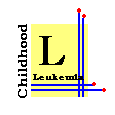

Chemotherapy is the use of drugs to treat cancer.
How chemotherapy works
Anticancer drugs usually work by killing cells which are undergoing active growth and division in the body, which is what happens with cancer cells.
Chemotherapy is usually the first type of treatment given. It is given in a few different ways:
1) By the mouth (orally) in a pill, capsule or liquid form.
2) Intravaneously - This can be given with the usual intravenous catheters. In many children, a special device called Port-a-Cath is used. It is made of titanium and plastic, and it is inserted just under the skin of the chest wall. This makes it much easier for the doctor to give the injections.
3) Intramuscularly (injection into a muscle) or subcataneously (under the skin)
4) Intrathecal route - Given into the intrathecal space, which contains cerebrospinal fluid surrounding the brain and spinal cord.
Side effects of chemotheraphy
Drugs used in chemotherapy not only kill cancer cells, but normal cells as well. As a result, side effects occur.
Drugs used in ALL therapy
1) Nausea and vomitting
2) Low white blood cell count
3) Increased susceptibility to Infections
4) Low haemoglobin (red blood cell) count
5) Low platelet count
6) Mouth sores
7) Hair loss
Chemotherapy drugs
Depending on the leukaemia, the protocol varies. Below is a list of the drugs used.
1) Asparaginase
Pronunciation: A-SPARE-a-gin-ase
Given through injection.
2) Daunorubicin
Pronunciation: Daw-noe-ROO-bi-sin
Given through IV injection.
3) Dexamethasone
Pronunciation: Dex-a-METH-a-zone
Given by mouth.
4) Mercaptopurine
Pronunciation: Mer-kap-to-PYOOR-een
Given by mouth.
5) Methotrexate
Pronunciation: Meth-o-TREX-ate
Given by mouth or injection.
6) Vincristine
Pronunciation: Vin-KRIS-teen
Given through IV injection.
Other concerns
Chemotherapy treatment is no more painful than an injection or blood test. Certain drugs have to be given slowly by continuous infusions, and thus the child may have to be hospitalised.
Chinese medicine and alternative therapies: These should not be self-admistered. One should always confirm with the doctor before allowing the child to consume any other medicine. This topic will be covered in more detail later on.
Activities and care: The child should be allowed to continue school and normal activities, apart from ones that are too rough as bruising may be problematic. Overprotection may cause the child to develop an inferiority complex. However, when the child's resistance is low, he/she should be in a clean environment and discouraged from making too much physical contact.
Food: The child should be allowed to choose their food (including fast-food). However, food consumed should be taken soon after being cooked and fruits (skin peeled off) are recommended. Chemotherapy may alter taste buds, so do not be surprised by a sudden change in food preferences.